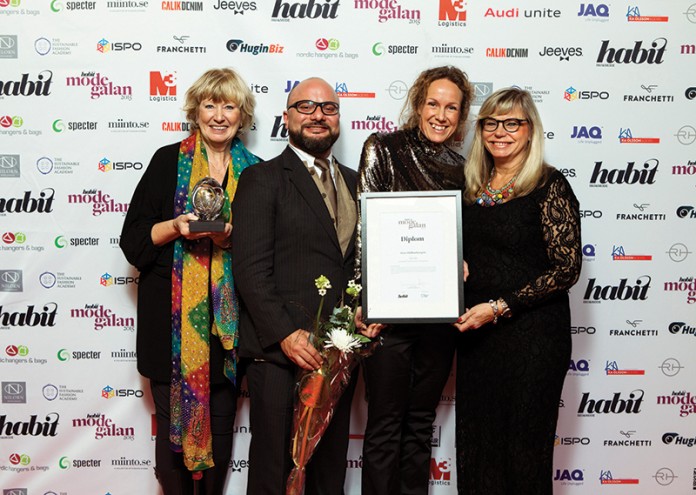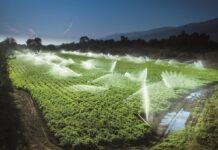
A successful collaboration for efficiency in water consumption, energy and chemical use in the textile industry has won the 2015 Habit Fashion Award for Sustainability. Sustainable Water Resources (SWAR) is a joint initiative between Stockholm International Water Institute (SIWI), Sida, Swedish fashion brands Indiska, KappAhl and Lindex, their Indian suppliers and sub-suppliers.
SWAR was honoured by the Habit jury for its impact in increasing efficient water, energy and chemical use at the factory level.
“SWAR piloted in 2013 in densely-populated northwestern India where the groundwater situation is dire,” said Torgny Holmgren, Executive Director, SIWI. “Basin levels continue to drop at an alarming rate, and pollution continues to stagnate human development in the region. We are proud that SWAR was recognised by Habit for directly increasing the efficiency of water, energy and chemical use in textile production in a systematic, cost-efficient and sustainable way.”
SWAR factories saved 7 percent of their total annual water use, 360 million litres. This amount equals the daily need of more than 3.5 million people. Through its parent network, Sweden Textile Water Initiative, the pilot programme has now scaled up across India and in China, Bangladesh, Turkey and Ethiopia, expanding to 120 factories supplying 20 major Swedish brands.
“Water and energy are the most important resources for our business,” explained Anuj Batra of Bee K Bee Prints, one of the factories participating in the programme. “Therefore our biggest driver to join SWAR was water and energy conservation. Apart from this, the cultural change in the factory, resulting from SWAR also helped us to continue our water and energy conservation activities.”
The SWAR initiative is a market-driven approach that creates demand for sustainable water use in production, based on real risk mitigation, and supplies management solutions to meet that demand.
“SWAR has enabled us to over-perform on almost all social, environmental and business metrics that we identified at the project start,” representatives from Indiska, Lindex and KappAhl said in a joint statement. “In addition, it provided clear evidence and data through exact measurements of water consumption metres, project implementation sheets for each implemented projects, and testimonials provided by the factories. This kind of accurate intelligence is often very hard to secure when working across industry borders.”








